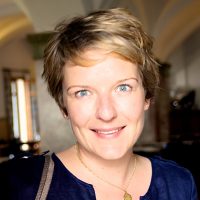Has Merkel’s Power Peaked?

Almut Möller
European Policy Centre
Almut Möller joined the EPC as Director for European and Global Affairs and Head of the Europe in the World programme in July 2024. She is a political scientist with professional experience in both think tanks and government. Her areas of expertise include EU institutions and politics, foreign and security policy, and multilevel governance, and she has published widely in these fields.
Prior to joining the EPC, she served as State Secretary and Plenipotentiary of the Free and Hanseatic City of Hamburg (2019-2024), representing the city state in Berlin, and at the European Union. In that capacity, she oversaw both the Berlin and Brussels representation offices and was a member of the Conference of Europe Ministers of the German Länder. She was also in charge of Hamburg's international relations, and the point of contact for the diplomatic and consular corps.
Before that, Almut was the Head of the Berlin office of the European Council on Foreign Relations (2015-2019), headed the Europe program at the German Council on Foreign Relations (2010-2015), and worked as an independent political analyst based in London (2008-2010). She started her career in think tanks as a researcher at the Centre for Applied Policy Research (C.A.P) at Ludwig-Maximilians-Universität in Munich (1999-2008).
Almut was a guest researcher at Renmin University of China in Beijing (2006), Al Ahram Center for Political and Strategic Studies in Cairo (2007), and at the American-German Institute (AGI) at Johns Hopkins University in Washington D.C. (2008).
She was a 2016-2017 participant in AICGS’ project “A German-American Dialogue of the Next Generation: Global Responsibility, Joint Engagement,” sponsored by the Transatlantik-Programm der Bundesrepublik Deutschland aus Mitteln des European Recovery Program (ERP) des Bundesministeriums für Wirtschaft und Energie (BMWi).
Angela Merkel is under pressure. For many years she has been a rock at Brussels’ conference tables dominated by sobering discussions on the economic and social outlook of EU member states, and the German chancellor has become ever stronger both at home and abroad. While many leaders felt the impact of the economic crisis in elections back home, Merkel only seemed to be gaining in support and confidence. At the height of her success in 2013, she won her party an impressive victory in the federal elections, ultimately turning into the unchallenged face and leader of her Christian Democratic party (CDU), and of German power in Europe. The Kanzlerin (chancellor) earned respect from both her admirers and critics by taking the lead on Europe’s most pressing challenges, i.e. the future of the European Union and Russia’s threat to European security. Handling negotiations on the euro zone crisis and the annexation of Crimea have strengthened her – but dealing with a third fundamental test to Europeans, and indeed Germany, within less than a decade might turn out to be too much, even for Angela Merkel. Continue reading.
This article originally appeared on the European Council On Foreign Relations website on October 8, 2015.
Almut Möller is Head of ECFR Berlin Office and Senior Policy Fellow and an AGI Non-Resident Fellow.









